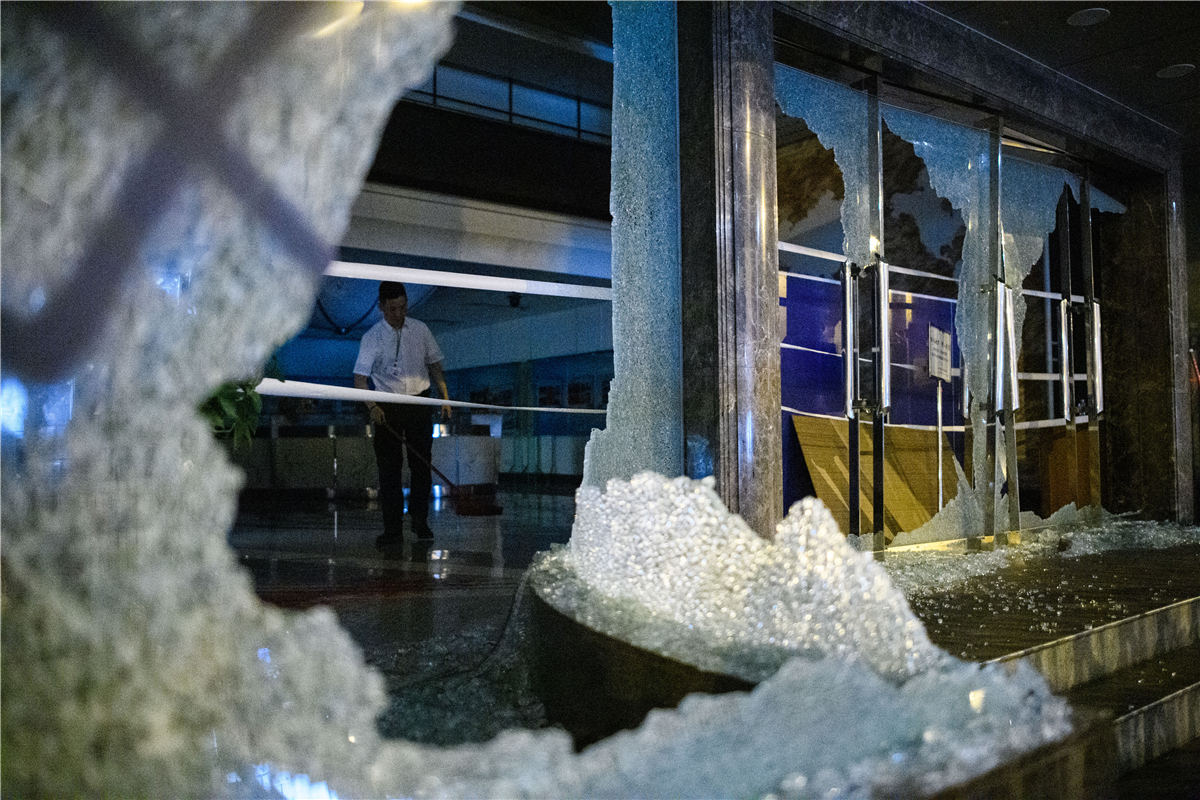HK should consider law against fake news


King Canute, the ruler of Denmark, England and Norway, was known for his arrogance, standing on the banks of River Crouch, in the English county of Essex, in 1035 and trying to turn back the tides in vain.
In the 21st century, information explosion on social media and attempts to resist its tide could be viewed in a similar vein.
With the anti-government protests in Hong Kong, the fury among radical protesters can be attributed to the free flow of fake news on online platforms and private chat groups. Therefore, a law against fake news is long overdue.
On Oct 31, the Hong Kong High Court, on an application filed by the Secretary for Justice, granted an injunction order to restrain people, from "willfully disseminating, circulating, publishing or republishing" or "assisting, causing, counseling, procuring, instigating, inciting, aiding, abating or authorizing others to publish or republish any material online that promotes use of violence, intended or likely to cause unlawful bodily injury to a person or property damage", until a formal hearing. The court order is necessary to get a grip on the protests.
According to Politifact, a fact-checking website, fake news is "made-up stuff, masterfully manipulated to look like credible journalistic reports that are easily spread online to large audiences".
Although such disinformation has always existed, the sprouting of social media platforms and messaging apps has made it easier to spread falsehoods.
Fake news and misinformation have been running rampant in Hong Kong, with allegations of rape and murder leveled against police on social media and private chat groups.
For example, the suicide of a 15-year-old-girl found off Tsueng Kwan O shores, sparked rumors of murder even though the girl's mother refuted such rumors and confirmed on a TV program that her daughter was suffering from mental illness. Video footage taken from the school where the girl was last seen before her death showed no signs of murder.
This shows how fake news is used to fuel public sentiment.
The court's interim ban on publication of inciting material reveals the lack of legal tools to contain the violence stemming from mistrust and misdirection of the public by fake news with a view to defaming police and destabilizing society.
In the short term, the scope of the interim ban should be expanded to include fake news spread with the objective of causing or inciting others to cause social unrest in Hong Kong; in the long term, the Hong Kong government should explore the possibility of enacting a law against fake news. Such legislations are in place in many countries, including Singapore, Germany and France.
Considering the similar socioeconomic structure and the common law legal system-in which the judicial precedent or decisions from higher courts in previous cases on the same issue, must be followed by the court when deciding a case-in Hong Kong and Singapore, Hong Kong can take a leaf from Singapore's Protection from Online Falsehoods and Manipulation Bill. The legislation bans the spread of what the government perceives as false statements against public interest and the use of fake accounts or bots to spread fake news.
A person found guilty could be heavily fined and/or jailed up to 10 years. The law could be applied to news websites, chat groups and social media platforms, including apps with end-to-end encryption.
While critics argue that such a law, if introduced in Hong Kong, may stifle freedom of speech and expression, one must first understand that freedom of expression and speech is never absolute. It is subject to the greater need to protect public safety and national security.
Second, the civil right of free speech has to be distinguished from the freedom to spread fake news and falsehood. The law against fake news only empowers the government to act swiftly to halt the spread of falsehood.
While the law does not have any objective of deterring citizens from exercising their freedom of speech and expression, it also ensures how free speech and expression can be better exercised.
The media should have no concerns about the impact of the law on press freedom. After all, we trust that our media will ensure the authenticity of news and information reported.
Against the backdrop of intense political controversy and divisions in Hong Kong, it is vital for the government to explore all legal means to pull the plug on fake news and rumors, lest their continuing spread push Hong Kong to the edge.
The author is a Hong Kong practicing solicitor, chairman of Y Legalites firm, and vice-chairman of the Hong Kong KOL Project group. The views do not reflect those of China Daily.
- China's commercial rocket maker puts two satellites into orbit
- People in Taiwan commemorate victims of White Terror period
- China successfully launches new test satellites
- China launches Lijian 1 Y9 carrier rocket
- First cross-border event debuts at the National Games
- China Focus: National Games enhances coordination under 'one country, two systems'





































